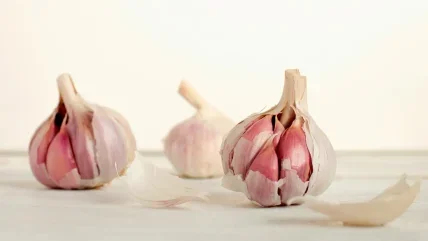
A key ingredient in Garlic is comparatively more helpful in protecting against food poisoning, than antibiotics, according to a study conducted by researchers at Washington State University.
Published in the Journal of Antimicrobial Chemotherapy, the report said that diallyl sulphide, a compound in Garlic is about 100 times more powerful at fighting one of main causes of food poisoning, compared to two noted antibiotics – erythromycin and ciprofloxacin.
The research observed that the ingredient is able to easily break a slimy protective biofilm, used by the bug in making itself more difficult to destroy, in fraction of time.
The compound could penetrate the protective film to destroy the microbes by targeting a metabolic enzyme, the report said.
According to the researchers, this new discovery paves way for new treatments for raw and processed meats, as well as food preparation surfaces, while decreasing the toll of Campylobacter food poisoning.
Washington State University researcher Dr. Michael Konkel, commenting on the new discovery said, “Campylobacter is the most common bacterial cause of food-borne illness in the United States and probably the world”.
Two Previous studies, published in 2011, also observed that the garlic compound was effective against other types of food-borne bugs, such as Listeria monocytogenes and Escherichia coli O157.
Konkel added that diallyl sulphide is also useful in reducing the levels of the Campylobacter in the environment and to clean industrial food processing equipment, where the bacterium is found in a biofilm.
Image: Diallyl sulphide, a compound in Garlic is 100 times more powerful at fighting one of main causes of food poisining, compared to two noted antibiotics. Photo: Jonathunder.






